Saturday June 11th 2016
The speakers were sparky, the pitches gleamed, the cake was sumptuous.
TLC’s Writers’ Day drew a driven bunch of writers, creatives and industry pros to celebrate The Literary Consultancy’s 20th birthday with a breathless programme of publishing advice and writerly inspiration.
TLC’s effervescent Editorial Services Manager Aki Schilz opened the show with a tribute to sponsor IngramSpark (an immediate connection to the world of self-publishing) and a nod to TLC’s ongoing work with authors at every stage of the pre-publishing process.
This gave Aki an ideal segue into the first session of ‘How To Pitch’, with speaker Scott Pack, Associate Editor at Unbound and previously a publisher with HarperCollins.
Scott rattled through a 30-minute version of his extensive Guardian Masterclass presentation on how to take your finished, edited manuscript and send it out into the wild.
The emphasis here was trad-pub, with most of Scott’s advice geared towards submission to literary agents. But his main point was loud and clear for all authors, regardless of how they’re planning to publish: be professional (‘READ THE BLOODY GUIDELINES!’) and be prepared (look at what other similar authors are doing and, if you’re going for trad-publishing, research your agents for suitability and—clearly a personal bugbear—make sure you spell their names right.)
Scott admitted that writing a synopsis isn’t something that most authors enjoy. His advice? Keep it to 500 words and make it simple, straightforward and unemotional. As literary agent Juliet Mushens pointed out later in the day, “The synopsis is a technical document. It tells us who dies at the end.”
As for blurbs, Scott had a great tip: take a look at the Internet Movie Database (IMDb) and see how movie marketers summarise the films. Steal from the techniques they use to tease and intrigue in a small space.
‘READ THE BLOODY GUIDELINES!’
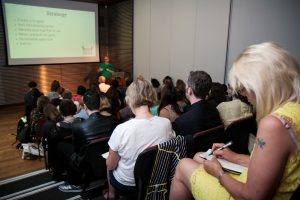
And how do you know that you’re even ready for all of this? Seek out objective feedback: from writer groups and trusted, objective readers. (“Good, critical beta-readers are not people you have slept with or are hoping to sleep with you.”)
Then, a chance to see five authors apply Scott’s advice, as they took to the stage to pitch their books to a panel of five industry judges: publisher and editor Valerie Brandes (Jacaranda Books), novelist Gautam Malkani (Londonstani) and literary agents Juliet Mushens (United Talent Agency) and Piers Blofeld (Sheil Land).
The authors had secured their platform by submitting to the TLC Pen Factor Writing Competition for unpublished writers. The grand prize was a year’s editorial support from TLC, printing services from IngramSpark, and various freebies from several creative and literary companies, all geared to helping authors build their brand and hone their craft.
With the judges watching over the presentations from a raised balcony, the mood was a little gladiatorial. But Catriona Shine bravely stepped up first to give a beautiful reading from The Invasion of Silence, her dystopian story of a 17-year-old boy and his mother struggling to survive on a remote farm in the Oklahoma Panhandle.
Catriona took her applause, and the judges offered constructive and encouraging feedback, on pitch style, content and marketability. (Piers Blofeld suggested that Catriona could entice readers by relocating the novel to a more familiar setting.)
The firm but friendly comments eased some of the initial tension, and Nikheel Gorolay impressed both audience and judges with a measured reading from his novel Bricks & Mousa, a British-Asian tragi-comedy. Next, Charlie Weaver Rolfe lightened the mood with a pitch for Catfood, a comic literary novel about one man and his cat. (Valerie Brandes suggested that he might think about toning down the exclamation marks, which drew a few nods from the editors in the audience.)
Next up, Kerry Lawrence offered an erudite introduction to The Cossack, a political thriller about a photographer’s investigation of an ancient deal between the USA and Ukraine. Her reading was polished and carefully paced to match the novel’s Le Carré-like tone.
Finally, Gill Haigh rounded off the pitches with a funny and confident read from Singing For Seals, her first-person take on the messiness of human relationships.
To cap the session, TLC Pen Factor 2014 winner Guinevere Galsfurd took to the stage with the resplendent hardback of her histo
rical novel The Words In My Hand. After an assured reading from a passage where lead character Helena discovers the pleasures of writing, Guinevere offered some stirring advice for the watching authors. (“Write the best book you can, and secure an editor who cares about your work.”)
The snobbery is disappearing, with the readers taking on the role of gatekeepers
With everyone happily lunched and networked, the talks continued with the inimitable Ben Galley steaming through another condensed Guardian Masterclass, this time on ‘How To Publish’.
While Scott Pack’s talk explored options for authors taking the trad-pub route, Ben concentrated on self-publishing, mapping out the key points in the DIY production process: editing, design, typesetting, distribution.
Self-publishing now has many advantages (creative control, higher royalties, agility, quick access to global audience) and, as Ben explained, the snobbery is disappearing, with the readers taking on the role of gatekeepers.
But to move further away from the ‘vanity’ slur, Ben implored indie publishers to focus on quality. If you choose to independently publish your work, then you’re both artist and project manager. Hire professionals and manage them to produce the best possible version of your book, and then get it out to the world by using indie-friendly distributors like IngramSpark.
The day’s final speakers, Yen Ooi and Lisa Goll from CreateThinkDo, acknowledged the audience’s PowerPoint Fatigue and delivered a freeform two-hander on ‘How To Market’.
While many authors seem to think that ‘marketing’ is simply a scattershot battle for visibility, Yen and Lisa emphasised the need for precision. Decide on the key words that define your personal qualities, instead of just joining the crowd who are all shouting, ‘buy my book!’.
If you market your whole self and not just an individual book, then you can keep building and evolving a unique brand, rather than starting from scratch for each project. By being value-driven in this way, you can make the process collaborative, and more of an offer of service than an insistent plea for attention.
Presentations over, Aki wound up the day by cueing an audience drumroll and announcing the TLC Pen Factor winner. Kerry Lawrence seemed genuinely shocked, and chose to thank her competitors rather than mak e a victory speech. Besides, the time for talking was over. There was cake to be eaten…
e a victory speech. Besides, the time for talking was over. There was cake to be eaten…
At around four and a half hours, the TLC Writers Day was a gift for the attention-deficient. It was brimming with actionable advice for authors, and perhaps this new format of TLC’s pioneering Literary Conference will be the springboard for a regular mini-festival which demystifies the ever-shifting journey from blank word-processor page to book.
Best of all, the atmosphere was open and inclusive, with none of the tribalism or defensiveness which often takes the shine off creative book events.
With the industry rapidly evolving around the options opened by technology, it was a joy to witness a gathering which dismissed the self vs. trad divisions and focused on a singular goal: to help authors produce high quality books, regardless of publishing pathway.
Andrew Lowe
June 2016




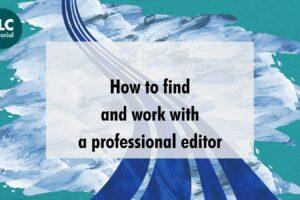
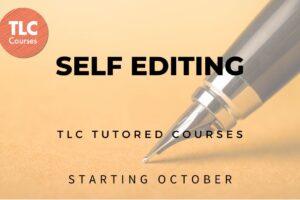
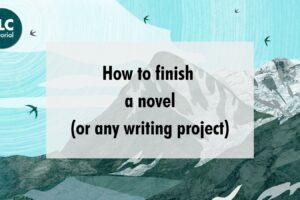
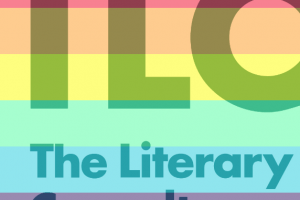
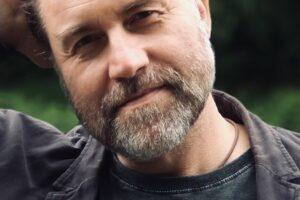

One Response
Hi Andrew. For merely mentioning my name in proximity to John Le Carré (pause for genuflection) no matter how unmerited on my part, you are now officially my new best friend. I’d run away fast if I were you… More seriously, many thanks for the kind comments, and yes, my surprise was certainly genuine. Plaudits to my fellow Pen Factor finalists, and may a Waterstones display window be in all of our futures.